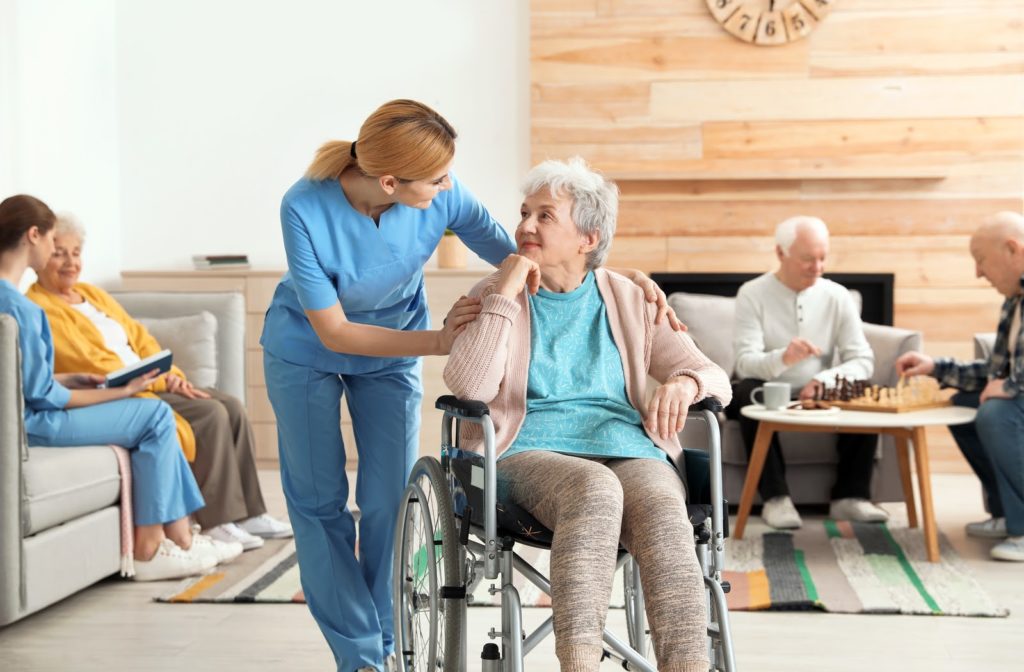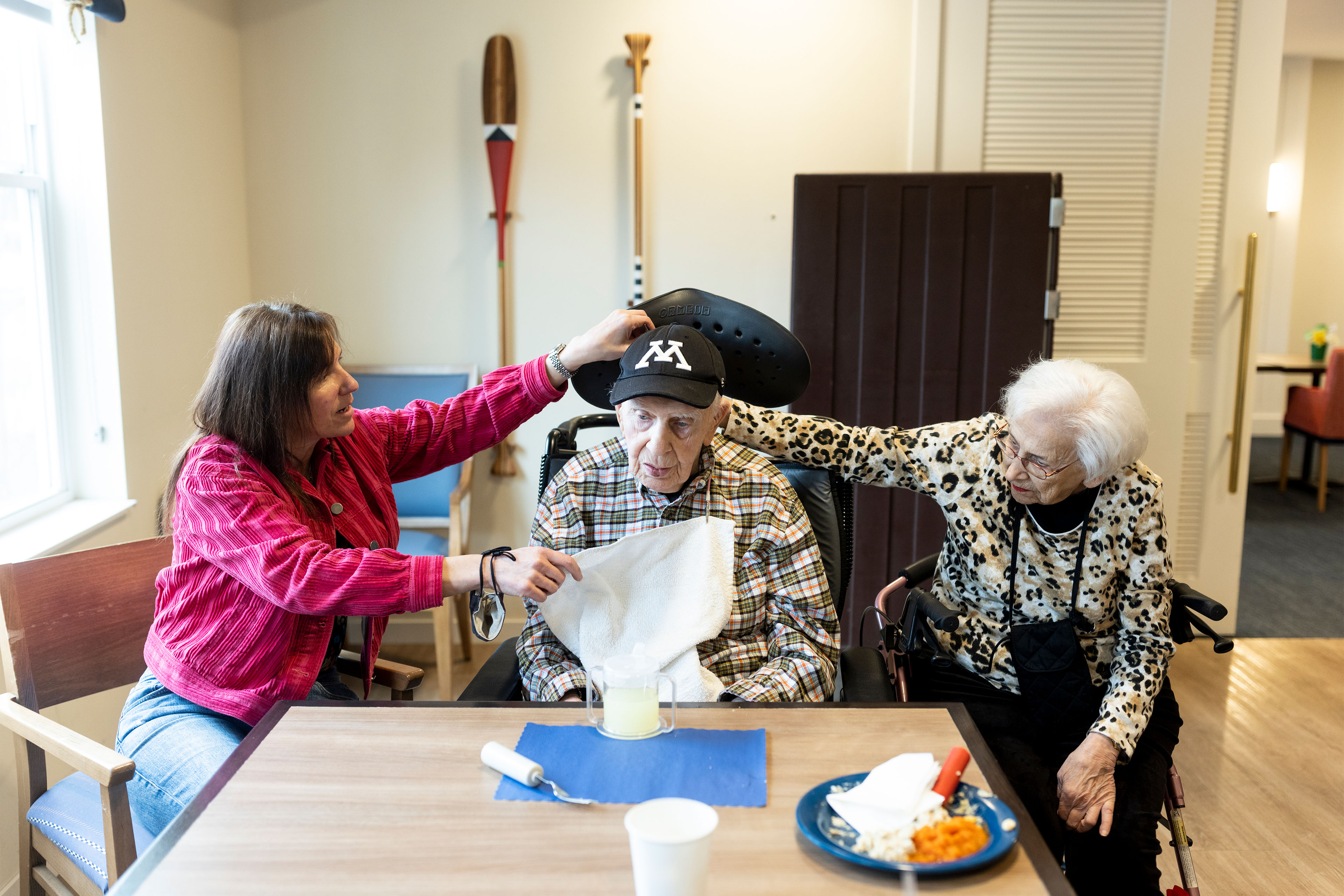Find trained Memory Care professionals providing personalized senior care.
Find trained Memory Care professionals providing personalized senior care.
Blog Article
Just How Aided Living Facilities Enhance Top Quality of Life for Those With Mental deterioration
Assisted living centers play a critical function in boosting the lifestyle for people with dementia by applying tailored care strategies that deal with their distinctive requirements. These environments combine organized activities with psychological support, promoting a sense of community while making sure safety and self-reliance. The assimilation of appealing programs and family members involvement additionally improves the citizens' experience. The intricacies of dementia care proceed to progress, prompting a better exam of how these facilities adjust and innovate to satisfy the difficulties encountered by residents and their households. What implications does this have for future care designs?
Personalized Care Program
(Dementia Care Charlotte)In a lot of cases, people with dementia require tailored support that resolves their special needs and preferences. Personalized care plans are crucial in assisted living settings, as they guarantee that each resident gets proper interest and services. These strategies are developed collaboratively, entailing medical care specialists, caretakers, and relative to create a comprehensive overview of the person's medical history, cognitive abilities, and individual interests.
A well-structured individualized treatment plan normally consists of specific objectives connected to health and wellness administration, day-to-day activities, and social engagement. It makes up the person's cognitive decline while promoting independence and dignity. Normal analyses and updates to the treatment plan are vital, as they enable adjustments based upon the citizen's developing condition and choices.
Secret parts of these strategies frequently involve drug administration, behavioral assistance methods, and nutritional guidelines customized to the individual's demands (Assisted Living). By concentrating on customized treatment, helped living facilities can foster an encouraging setting that improves the lifestyle for people with dementia, eventually contributing to their total wellness and happiness. This individualized technique respects the individuality of each local, guaranteeing they obtain the compassionate treatment they require

Involving Activities and Programs
Engaging citizens in purposeful activities and programs is essential for improving the lifestyle for people with mental deterioration. These tasks not only give pleasure yet also boost cognitive feature and advertise social interaction, which can minimize feelings of isolation usually experienced by locals.

In addition, personalized programs are vital in guaranteeing that each local's special choices and capabilities are acknowledged. This tailored technique encourages participation, boosts self-worth, and gives a sense of accomplishment.
Furthermore, regular assessments of residents' passions can help staff modify and adapt tasks to far better fit developing requirements. By prioritizing engaging tasks and programs, aided living centers can dramatically boost the general experience and emotional health of people dealing with mental deterioration.
Safe and Supportive Setting
Developing a secure and supportive atmosphere is vital for individuals with dementia, as it directly influences their wellness and high quality of life. Assisted living centers are designed with particular features that advertise safety and security while fostering a complacency and comfort. These settings focus on availability, with formats that reduce confusion and motivate independence, permitting locals to navigate their environments much more conveniently.
Security measures, such as protected entrances and leaves, avoid straying and unauthorized access, which are vital factors to consider for individuals with mental deterioration (Assisted Living). Team member are educated to acknowledge the one-of-a-kind needs of homeowners, giving tailored assistance and supervision to ensure their safety and security. In addition, the consolidation get more of calming colors and acquainted things can assist decrease anxiousness and disorientation, producing an extra reassuring ambience.
Along with physical safety, emotional assistance is vital. Facilities commonly employ staff that are not only skilled in caregiving yet likewise trained in empathy and communication, fostering depend on and relationship with homeowners. This all natural approach contributes to a nurturing atmosphere where individuals feel valued and understood, eventually improving their total lifestyle.
Social Communication and Community
A helpful setting not just focuses on safety and security however additionally cultivates chances for social communication and neighborhood interaction, which are crucial for individuals with dementia. In assisted living centers, structured tasks and communal spaces encourage residents to connect with each other, minimizing sensations of seclusion usually experienced by those with cognitive problems.
Social communication plays a substantial duty in boosting psychological health and cognitive feature (Assisted Living). Involving with peers in team tasks such as games, arts and crafts, or exercise not just boosts cognitive capabilities yet likewise nurtures a sense of belonging. Facilities usually arrange events that promote socialization, allowing homeowners to develop connections and share experiences, which can be especially valuable for those with mental deterioration
Moreover, a lively neighborhood ambience can improve the overall high quality of life for citizens. Staff members are educated to help with communications and support homeowners in developing meaningful connections.
Family Members Involvement and Support
Family participation is important in sustaining individuals with dementia in assisted living settings. Proactively engaging relative not only offers emotional convenience to citizens but also promotes a feeling of belonging and continuity in their lives. When family members take part in care preparation and day-to-day tasks, they contribute useful understandings about the individual's preferences, background, and needs, which can boost individualized treatment.
Moreover, routine family gos to can dramatically enhance the emotional wellness of citizens, reducing feelings of isolation and stress and anxiety. Member of the family can likewise help in preserving cognitive feature by engaging their enjoyed ones in acquainted conversations and activities. This interaction reinforces individuality and aids residents feel valued and understood.

Conclusion
Finally, assisted living facilities dramatically enhance the lifestyle for people with dementia through individualized treatment strategies, involving tasks, and a safe environment. These components foster cognitive stimulation, psychological wellness, and a sense of self-reliance. In addition, regular social communications and solid family participation contribute to meaningful links and psychological support. Jointly, these elements develop a holistic strategy to care that addresses the distinct demands of individuals with mental deterioration, promoting overall well-being and self-respect.
Report this page